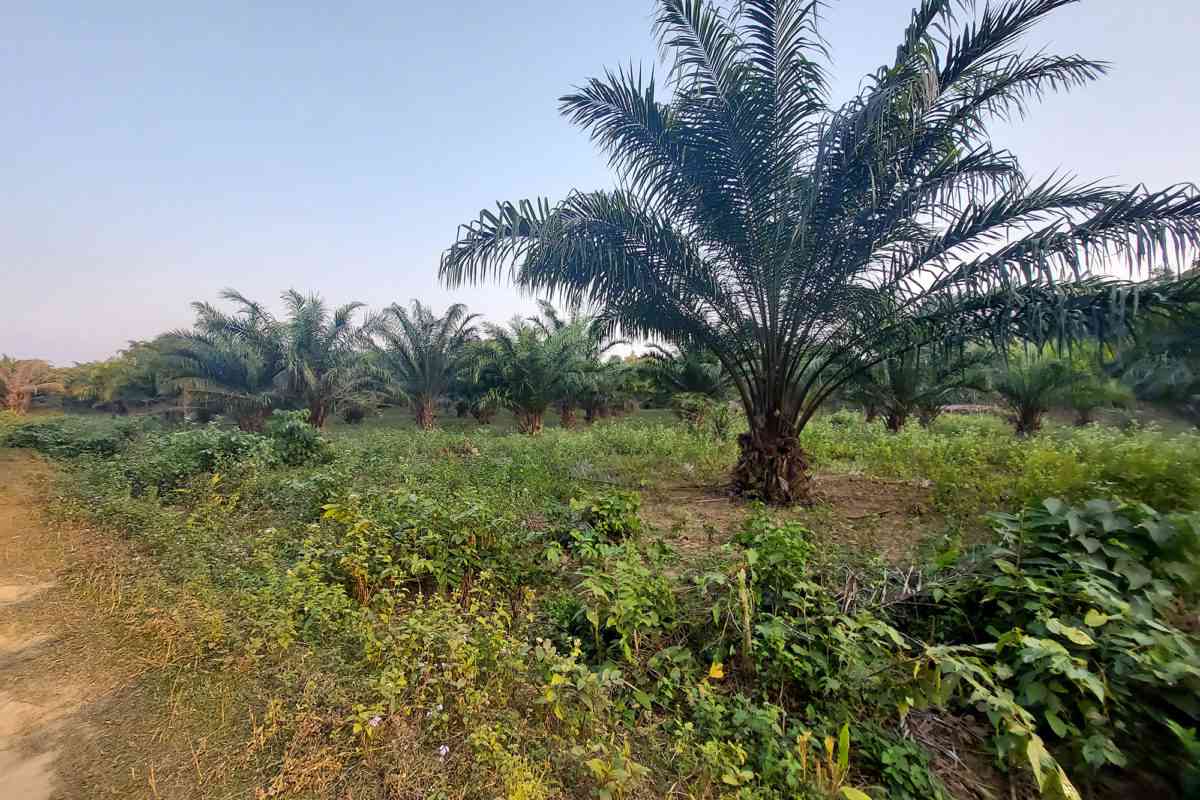
By Ashis Biswas
KOLKATA: In Northeast India, the debate over officially proposed palm oil cultivation on a major scale has warmed up, with some opposition parties in Assam protesting the state’s decision to go ahead with the scheme.
Already in Manipur, tribal organisations as well as the strong pro-environment protection lobby have warned the Central and state Government authorities not to launch such cultivation projects in a state where cultivable land is scarce. In sections of NE-based media, there have been accounts of how the ruling Central and state Bharatiya Janata Party(BJP) leaders allowed major industries — including some known for their close ties with the top BJP leaders — to begin commercial cultivation.
The Centre’s logic is simple. The country has to import over 13 million tonnes of palm oil annually, whereas only about 10 million tonnes are being produced domestically. Palm oil is needed not only for food preparations, but also as a basic input for the large fast moving consumer goods (FMCG) sector in the country. Also, the demand for such oil is likely to double in about five years’ time.
Keeping such emerging trends in view GOI decided to increase domestic production on a major scale as early as possible. Ensuring food security as well as economy growth was the objective.
A critical situation arose during the worldwide economic slowdown caused by the covid 19 pandemic. Major palm oil producers Malaysia and Indonesia, which account for around 41% of world production, reported large production shortfalls owing to labour shortage and other reasons. India had to import palm oil from Latin American countries as a result, but declining trends have been reported from there as well.
Because of the shortfall in imports domestic price of palm oil has shot up by around 30 per cent .Given this situation, GOI has no choice but to go in for larger domestic production of the item. GOI finalised an ambitious Rs 11040 crore scheme with special emphasis in Northeast and the Andaman Islands for the immediate cultivation of palm oil over 600,000 hectares in the next few years. Six districts were selected in Assam but other states including Tripura too were selected for the project.
The Supreme Court however, disallowed the move to launch such a project in the Andaman islands, fearing an impact on the local eco system. The decision was welcomed by environmentalists and mass organisations in the NE region worried by the scope of the official plans.
Opposition parties in Assam, including the Aam Aadmi Party (AAP), the Asam Jatiya Parishad (AJP) and the Trinamool Congress (TMC) have joined forces to oppose GOI”s move. Opposition leaders have pointed out that each palm tree requires at least 300 litres of water in the short term for its survival. A consistent water supply on such a scale is simply not possible at the present times, when global warming has emerged as a major existential challenge for the world.
Rivers, creeks and lakes are running dry all over the world. Entire glacier ranges and icebergs are melting rapidly. Rainfall has been decreasing steadily and become very erratic, resulting in large floods and water wastage.
This has naturally forced most countries to go in for greater commercial use of groundwater, leading to the fast depletion of water tables. In fact the worldwide drop in ground water levels, thanks to wasteful and careless water usage, has led to subtle changes in the very natural motions of planet earth, an alarming sign.
Concerns about these and the acute shortage of water resources had led countries like Malaysia, Indonesia etc to ban the export of palm oil but above all, to reduce the domestic output itself! Other countries too were likely follow suit.
It was highly unusual, if not actually dangerous for GOI to go ahead with a massive palm oil production project, flying in the face of all existing world trends and projections. Apparently, GOI’s top priority was earning higher revenues come what may and never mind the long term existential safety of the people!
Interestingly Assam Chief Minister Mr. Himanta Biswa Sarma, known for his bold implementation methods especially for centrally-sponsored schemes, has dismissed the fears of environmentalists. He expressed his confidence that the need for more water needed for the cultivation of palm trees would be available in the shape of more rainfall in Assam itself!
Such a view has amazed and scared most people including political leaders in Assam. To local media spokesmen they have related their concerns citing the palpable de crease in annual rainfall in the state and the region, not to mention ever lengthening summer and dry spring seasons. As reported streams and rivers were drying up, trees, plants, birds and the eco system as a whole suffered. The tea crop had been hit hard with producers reporting a decline in quality and quantity of production.
There was an acute crisis of drinking water from most areas during summer and a drought-like condition for long spells in the year, blighting agricultural production.
Ignoring such signs could prove to be not only shortsighted, but suicidal, in the near future, they feared. The very bio-diversity as well as the general eco-system of the region would be threatened.
There are no signs yet that the ruling BJP leaders are heeding these warnings. (IPA Service)
The post North East: Political Parties Divided On Proposed Palm Oil Cultivation first appeared on Latest India news, analysis and reports on IPA Newspack.


